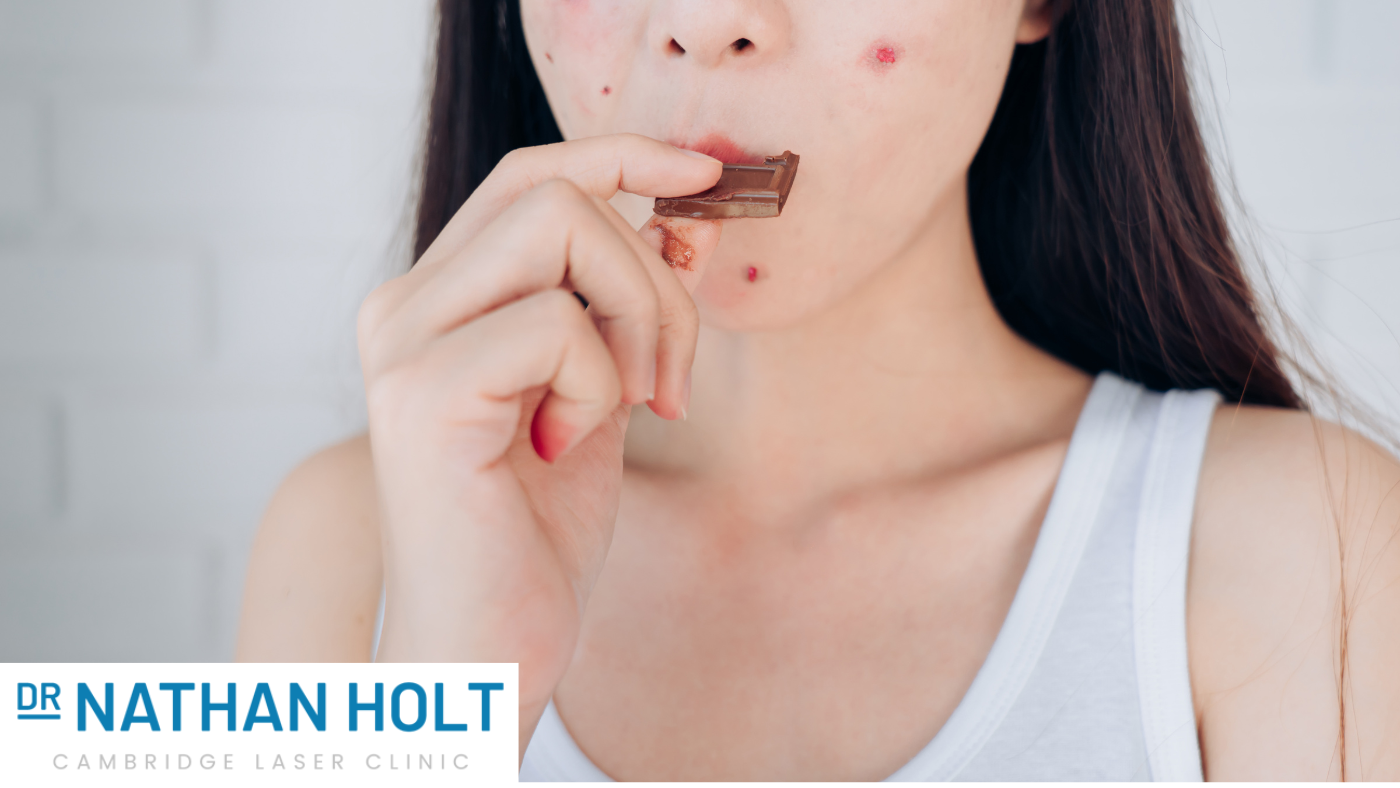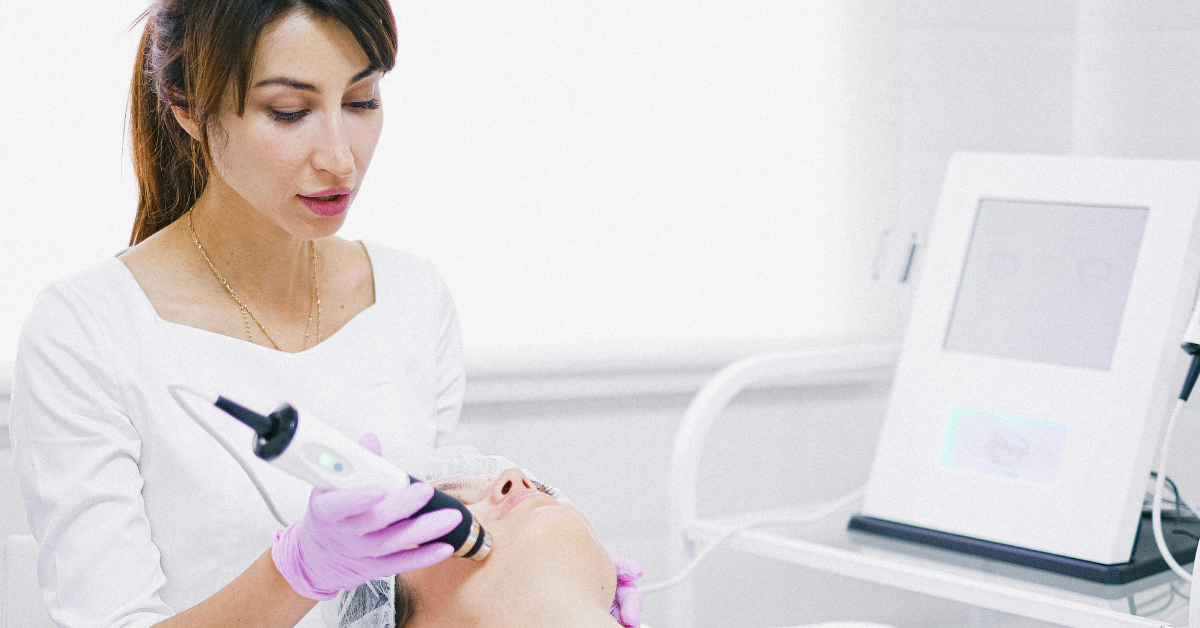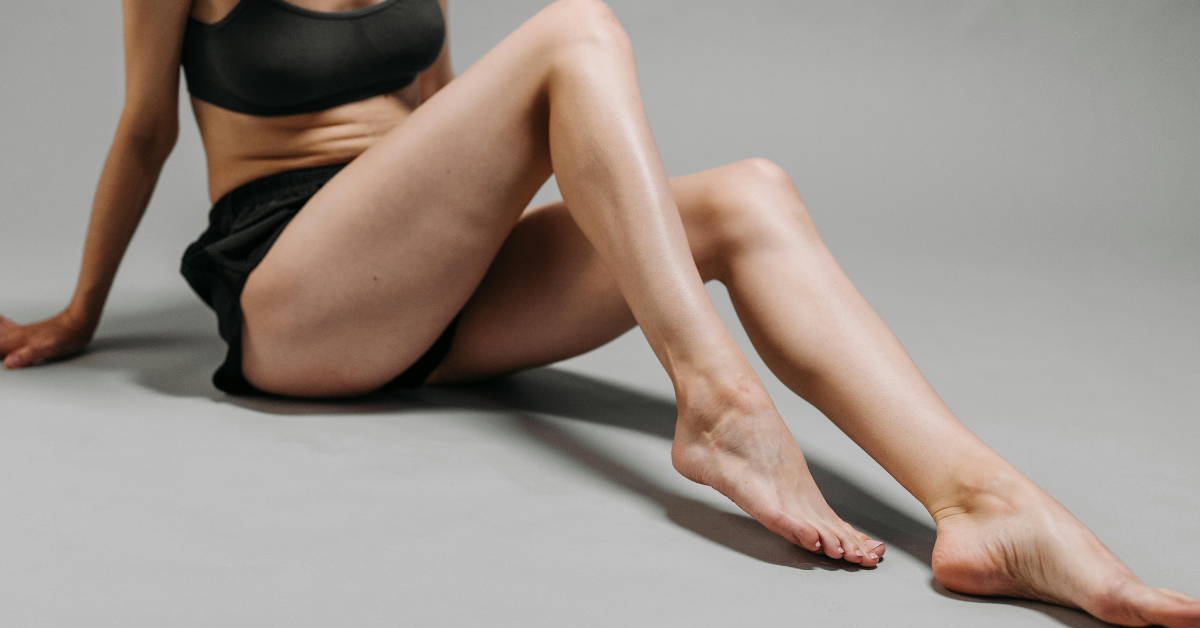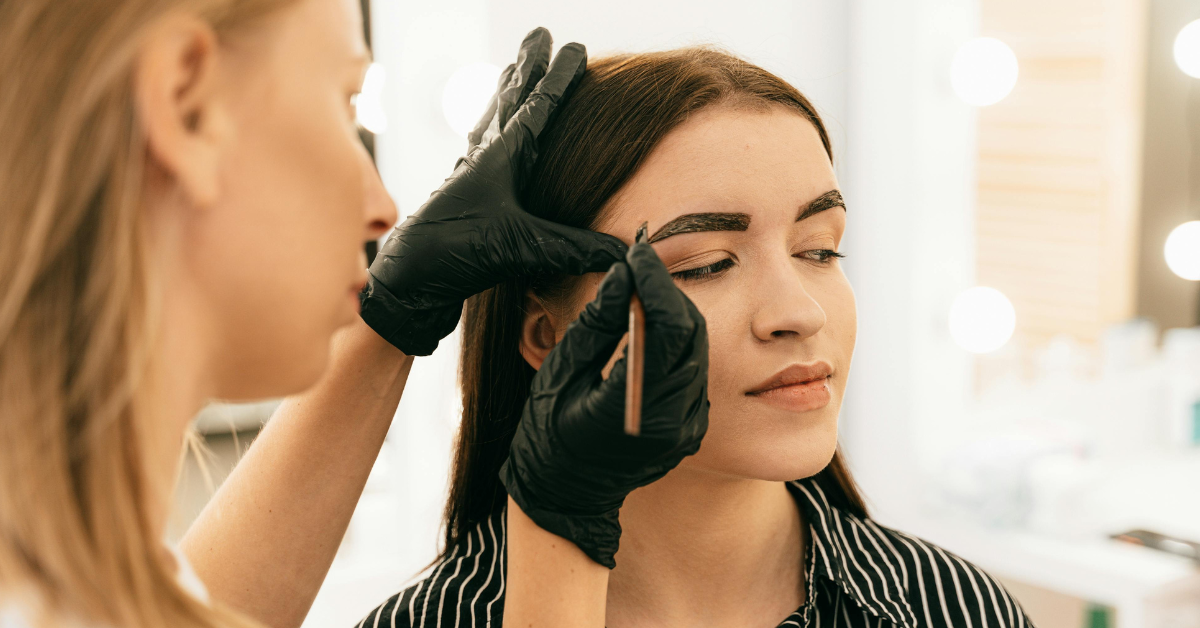Wrinkles, fine lines and creases are all part of the ageing process; it’s natural and to…

Debunking the Chocolate-Acne Myth: Separating Fact from Fiction
With Easter just around the corner, we wanted to take a closer look at the Chocolate-Acne question. For decades, the relationship between diet and acne has been a topic of debate among doctors, dermatologists, nutritionists, and individuals struggling with troublesome skin. One of the most pervasive beliefs is the idea that indulging in chocolate can trigger or exacerbate acne breakouts. But is there any truth to this common myth? In this blog post, we’ll delve into the scientific evidence to determine whether there’s a genuine link between eating chocolate and experiencing acne.
The Chocolate-Acne Connection: Myth or Reality?
Let’s address the elephant in the room: the notion that consuming chocolate leads to acne. This belief has been perpetuated for years, often based on anecdotal evidence rather than scientific research. But what does the science actually say?
The Role of Diet in Acne
Acne is a multifactorial skin condition influenced by various factors, including genetics, hormones, skincare habits, and yes, diet. Some studies suggest that certain dietary factors may exacerbate acne in susceptible individuals. These factors may include high-glycaemic-index foods, dairy products, and foods rich in saturated fats.
The Chocolate Debate
When it comes to chocolate specifically, research has yielded mixed results. While some studies have found a correlation between chocolate consumption and acne, others have found no significant association. It’s essential to note that correlation does not imply causation, and many factors can confound the relationship between chocolate and acne.
Understanding the Mechanisms
To understand the potential link between chocolate and acne, researchers have explored various mechanisms. One proposed mechanism involves the effect of chocolate on insulin levels and insulin-like growth factor (IGF-1), which may influence sebum production and inflammation in the skin, both of which are implicated in acne development. Additionally, chocolate contains certain compounds, such as cocoa solids and sugar, which could theoretically contribute to acne formation through inflammatory pathways.
Considerations and Limitations
While some studies suggest a possible association between chocolate consumption and acne, it’s essential to interpret these findings with caution. Many studies rely on self-reported dietary intake, which can be prone to bias and inaccuracies. Moreover, individual responses to chocolate consumption may vary, with some people experiencing breakouts after indulging in chocolate while others notice no effect.
Separating Fact from Fiction
So, is eating chocolate linked with acne? The answer isn’t black and white. While some research suggests a potential association, the evidence is far from conclusive, and many factors contribute to acne development. It’s essential to approach the chocolate-acne myth with a critical eye, recognising that dietary triggers for acne may vary among individuals. If you suspect that certain foods, including chocolate, may be contributing to your acne, consider keeping a food diary and consulting with a dermatologist or nutritionist for personalised guidance. Ultimately, maintaining a balanced diet, practising good skincare habits, and addressing underlying factors such as hormones and genetics are key to managing acne effectively.
We say, enjoy that Easter Egg on Easter Sunday but just be mindful of what you have eaten and keep a note in case you do notice a flare up.



